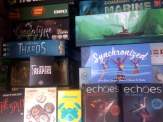Hi, it’s Joe Slack here. I’ve written a few guest posts for Oliver in the past and I was delighted when he requested another guest blog, so here we go!
Something I think about a lot as a game designer is how to create tension in a game as well as ensure that players feel a sense of progression as they play.
Tension can come in several forms and many great games provide players with just the right amount of tension in order to make every action matter without causing frustration.
It’s also a much better feeling when you’re playing a game and are able to do a lot more as you progress. Imagine a game where your last turn feels almost exactly like your first turn. That doesn’t sound like nearly as much fun as being able to pull off some amazing combos, chain together a number of moves or score a huge victory at the end.
Let’s talk about these two important aspects that are often found in great games, including examples of some games that have done them really well.
The Importance of Tension in a Game
Some games aim to provide a more relaxing experience, such as Tokaido or A Gentle Rain, which can provide players with a nice, soothing play session. However, many games are strategic and competitive, whether you are playing against other players or working cooperatively to beat the game.
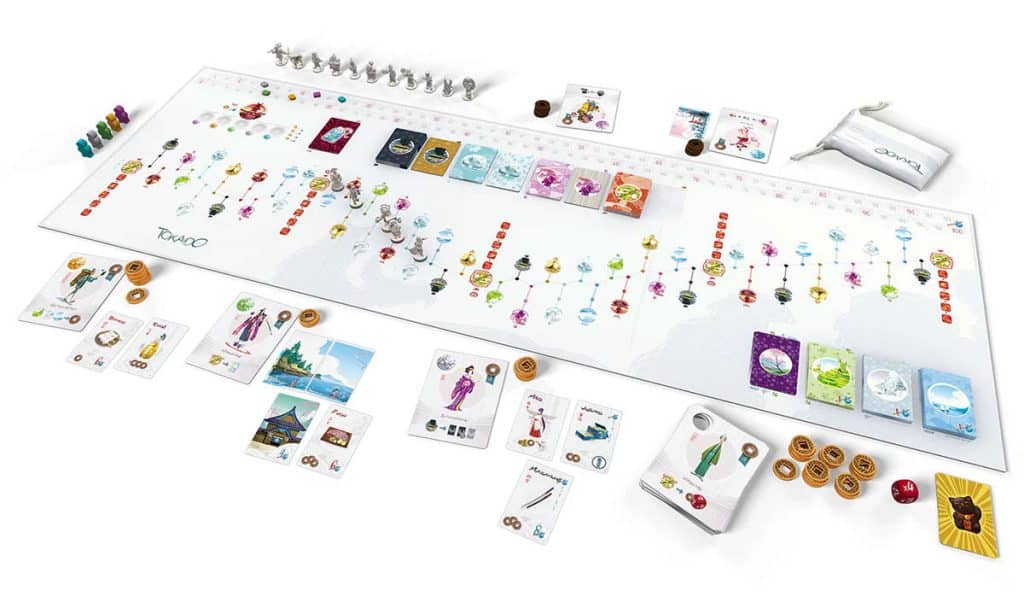
But if there are no stakes or if a player’s decisions are either lacking or are too obvious, it may feel like your actions don’t matter all that much.
Contrast that with being given a choice between taking a card that will help you immediately, one that will help you more long-term but may not pay off if you don’t complete your objective or perhaps another option that will hinder one or even all of your opponents.
You can see that this latter experience will provide more tension, tough decisions and reward smart, strategic play.
I’ve used the word “experience” a couple of times now and for a very good reason. As a game designer, I’m always thinking about what type of experience I want to give players. It’s all about the emotions and experiences I want players to feel throughout the course of a game, which may even change between the start and the end.
Tension can be created in so many different ways.
One of the more obvious ways is through the use of a timer. Real-time games create an automatic sense of tension and urgency, as you must accomplish certain tasks before the timer runs out otherwise you could lose the game or at least lose some of your progress.
One example of a real-time game with great tension is Magic Maze.
This is a cooperative game for one to eight players where you have to move four adventurers through a mall to collect their weapons and escape before time runs out. But the interesting twist is that players don’t control one particular adventurer, rather they control specific movements. One player may be able to move any adventurer north or West, while another player may only be able to move them east or up and down escalators.
The other twist is that players can’t talk except during specific pauses in the game. This creates a lot of tension, as players try to encourage others to make movements by merely placing a pawn in front of them to let them know that they want that other player to do something. What that something is, that other player needs to then figure out.
However, a timer isn’t needed to create tension. This feeling can also be created through limited resources that players must compete for, hidden information that only some players know or the uncertainty of what another player may do next (such as perform a sneak attack or trigger the end of the game before you’re ready).
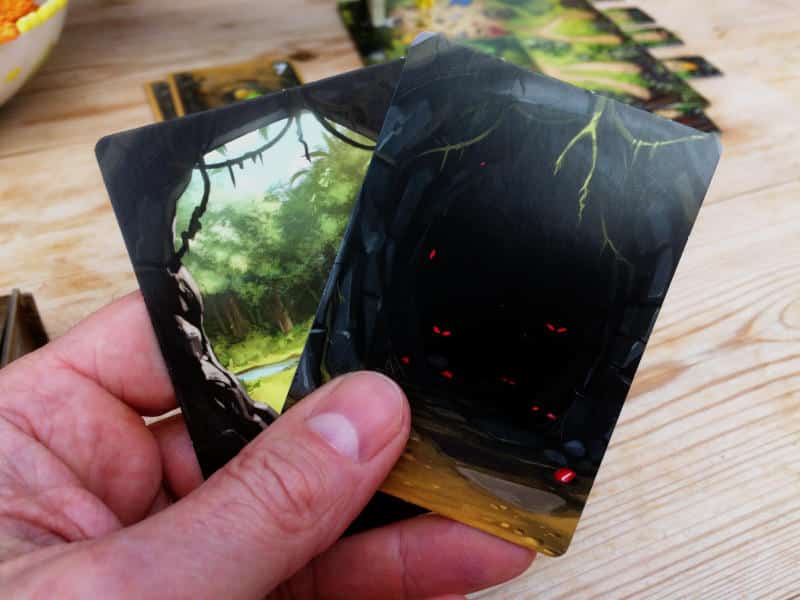
Incan Gold is another example of a game with a lot of tension. It’s a push-your-luck game where the only decision you make is: “Should I stay or should I go?” (reminds me of the Clash song!) Every time you decide to press on you are taking a risk. As soon as two obstacles of the same type are drawn, you’ll lose everything you’ve gained that round. So, it gets really tense when a player keeps drawing more and more cards and gaining lots of treasure, while all the other players are secretly (or openly) hoping that they will bust.
As you get closer to the last round this tension escalates, which is what we’re going to talk about next.
Game Escalation
As mentioned earlier, if your first turn and last turn in a game feel pretty similar, that might not be very exciting for players. Most games are focused around players trying to accumulate wealth, goods, points, accomplish goals or reach some other level of success.
That’s why so many great games build in a sense of escalation to make you feel like you’re more powerful, wealthy or clever as the game progresses.
This may be one of the reasons that engine-building games are often so successful. There is a real sense of progression in these games where you start off being able to do very little on your first turn but by the end you’re able to create amazing combos or score way more points than you were able to earlier on.
This progression or escalation is essential in so many games.
[Pic of Splendor]
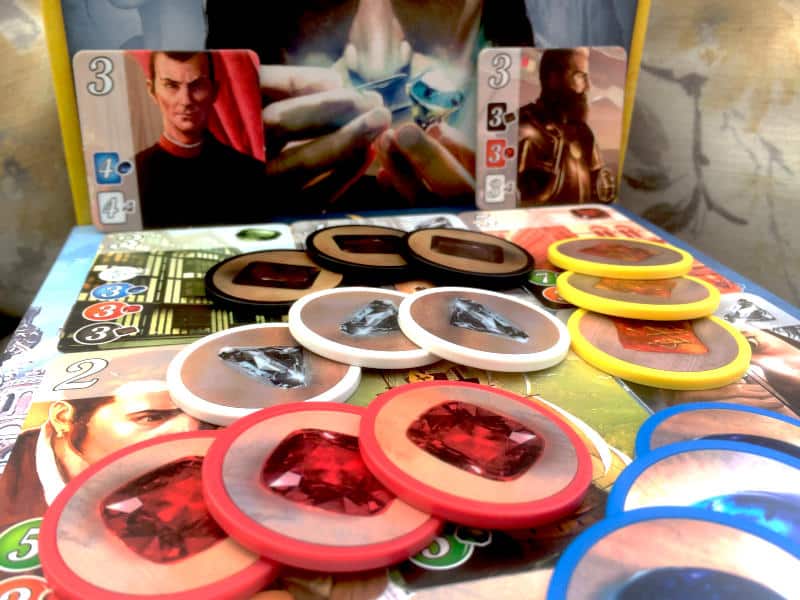
Splendor is a game that I often refer to as a great example of a clean, easy-to-learn engine-building game. At first, all you can do is gather gem tokens and after two or three turns you’ll be able to purchase your first card. The benefit of these cards is that they act as a permanent resource so that you will need to collect fewer gem tokens in the future in order to purchase more cards. Some of these cards also include points, which is what you need to win the game. However, you can also collect points from the nobles by collecting sets of cards of the same type.
There are three tiers of cards in Splendor. At the start of the game, you’ll only be able to go after the first tier, which are not worth much but will help you to be able to reach the 2nd tier and eventually the third tier where all the high point cards lie. There’s no way to get these high-point cards early in the game. You have to work your way there.
There’s a great sense of accomplishment when you’re finally able to buy one of those high-point cards, which may even trigger the end game if you reach 15 points or more.
Istanbul is another game that I love that has a great sense of escalation. Players are racing to be the first to obtain 5 or 6 gems (depending on the player count) and there are many ways to collect these gems. Most involve requiring you to become more powerful by increasing your wheelbarrow size, amassing more money or gaining special abilities.
At first, you only have a small wheelbarrow and a limited number of goods that you can carry. So, it can take a bit of time to obtain gems until you have improved your situation, which you can do in many ways.
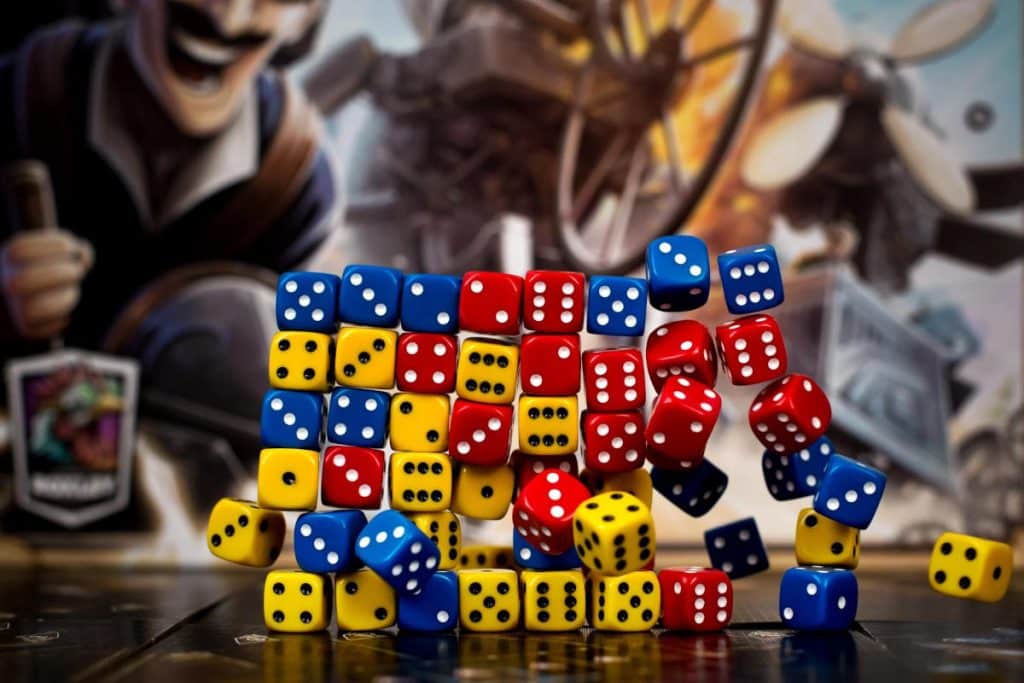
Finally, I have to mention Steampunk Rally. This is a game that boasts right on the box that it contains 108 dice, which is quite a lot! You use those dice to power a vehicle that you are actually building as you race. What a crazy concept!
As the game progresses, you will gain more and more dice and have more spots to place them. Often when you place a die you’ll gain more dice that you can then roll and place, building up exciting combos and more interesting turns as the game progresses. You may only be able to move one or two places at the start of the game but by the end, you could be flying along the track if you build your engine well.
Wrapping It Up
As a game designer and a gamer, I’m always interested to see how games create tension, escalation and a great experience for players. I find that games that have figured out just the right amount of tension and escalation stand out and above all the other games out there.
Fortunately, game designers of today are standing on the shoulders of giants. Other great game designers from the past have figured this out and have left us with many amazing examples of how to create tension and escalation in a game the right way.
Now, it’s up to the current generation of game designers to build on this and create even more amazing games for us to enjoy.
What are some of your favourite games that give you a strong feeling of tension and/or escalation?
Thanks again Oliver for letting me join you for this guest post!
If you enjoyed this article, please have a look at my support page to see how you can help keep the blog going.
Useful Links
- Tokaido: https://boardgamegeek.
com/ boardgame/ 123540/ tokaido - A Gentle Rain: https://boardgamegeek.
com/ boardgame/ 334011/ a-gentle-rain - Magic Maze: https://boardgamegeek.
com/ boardgame/ 209778/ magic-maze - Incan Gold: https://boardgamegeek.
com/ boardgame/ 15512/ incan-gold - Diamant review: https://tabletopgamesblog.
com/ 2023/ 04/ 22/ diamant-saturday-review/ - Splendor review: https://tabletopgamesblog.
com/ 2020/ 07/ 25/ splendor-saturday-review/ - Istanbul: https://boardgamegeek.
com/ boardgame/ 148949/ istanbul - Steampunk Rally: https://boardgamegeek.
com/ boardgame/ 162007/ steampunk-rally
Audio Version
Intro Music: Bomber (Sting) by Riot (https://www.
The Desert | The Grand Score by Alexander Nakarada (CreatorChords) | https://creatorchords.
Music promoted by https://www.
Creative Commons / Attribution 4.0 International (CC BY 4.0)
https://creativecommons.
Sandstorm by Alexander Nakarada (CreatorChords) | https://creatorchords.
Music promoted by https://www.
Creative Commons / Attribution 4.0 International (CC BY 4.0)
https://creativecommons.




